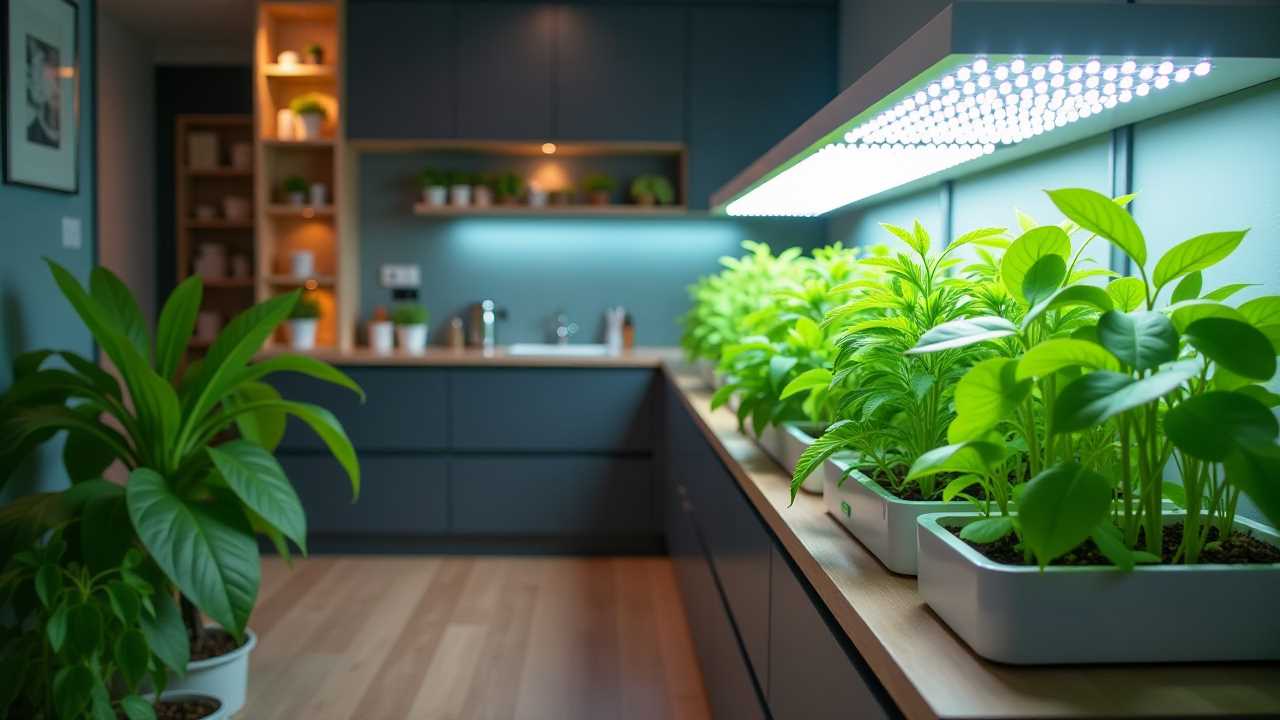Technology
What Are the Latest Trends in Indoor Gardening Technology?
Indoor gardening technology is advancing with smart garden systems that automate plant care. These systems provide optimal lighting and watering, ensuring

The latest trends in indoor gardening technology focus on innovation and efficiency. Smart garden systems automate lighting and watering, helping you create ideal environments for your plants. Hydroponics and aeroponics offer soil-less growing methods, speeding up growth and using less water, which is perfect for smaller spaces. LED lighting innovations have also improved, providing energy-efficient light that matches natural sunlight. Plus, mobile apps simplify plant care with features like watering reminders and pest control tips. Ultimately, vertical gardening solutions maximize your available space. Exploring these advancements can truly improve your indoor gardening experience.
Article Summary
Smart Garden Systems
Smart Garden Systems bring innovation and convenience to the world of indoor gardening, transforming how you nurture your plants.
These systems allow you to create a safe, controlled environment for your greenery, ensuring they thrive without constant supervision. With automated features like timers and moisture sensors, you can water your plants at the right time, reducing the risk of overwatering or underwatering.
Additionally, built-in LED lights mimic natural sunlight, promoting healthy growth while minimizing fire hazards.
You’ll appreciate the peace of mind that comes from knowing your plants are well-cared for, even when you’re busy. Investing in a smart garden can improve your indoor space, making it more inviting while keeping safety and plant health at the forefront of your gardening experience.
Hydroponics and Aeroponics
Indoor gardening is evolving beyond traditional methods, with hydroponics and aeroponics leading the charge in innovative plant care.
These soil-less systems use nutrient-rich water and mist to nourish plants, making them efficient and space-saving options for indoor gardeners like you.
Consider these advantages:
- Faster Growth: Plants grow up to 50% faster compared to soil gardening.
- Water Efficiency: These methods use up to 90% less water than conventional gardening.
- Pest Control: With no soil, there’s a reduced risk of soil-borne pests and diseases.
LED Lighting Innovations
With the rise of indoor gardening, LED lighting innovations have transformed how you cultivate plants in confined spaces.
These energy-efficient lights mimic natural sunlight, promoting healthy growth while keeping your energy bills low. Unlike traditional bulbs, LEDs produce less heat, reducing the risk of plant scorch and fire hazards.
You can find various spectrum options tailored for different growth stages, guaranteeing your plants receive the right light at the right time. Additionally, smart LED systems allow you to control light schedules remotely, adding convenience to your gardening routine.
When choosing LED lights, prioritize those with safety certifications to make certain they meet industry standards. Embracing these advancements can lead to thriving indoor gardens while maintaining a secure environment for your home.
Mobile Apps for Gardening
How can mobile apps improve your gardening experience? With today’s technology, these apps can be your best allies in cultivating a thriving indoor garden.

They provide essential tools and information at your fingertips, ensuring you grow safely and effectively.
- Plant Identification: Use your phone’s camera to identify plants and learn about their care needs.
- Watering Reminders: Set alerts for when to water your plants, preventing overwatering or drought stress.
- Pest Control Solutions: Access tips and treatments for common pests, helping you manage infestations without harmful chemicals.
Vertical Gardening Solutions
Vertical gardening solutions offer a fantastic way to maximize space while creating a lush indoor environment.
These innovative systems allow you to grow plants upwards, making them ideal for smaller areas. You can choose from modular wall planters, trellis systems, or even hydroponic setups, all designed to guarantee your plants thrive safely indoors.
When selecting a vertical garden, consider weight distribution and stability; you wouldn’t want it to topple over. Using lightweight materials can help prevent this.
Additionally, ensure proper drainage to avoid water damage to your walls or floors. Regularly check for pests and mold, as these can thrive in close quarters.
With thoughtful planning, vertical gardening can transform your space into a vibrant, green sanctuary.
Frequently Asked Questions
What Are the Benefits of Indoor Gardening for Mental Health?
Indoor gardening boosts your mental health by reducing stress, enhancing mood, and increasing mindfulness. You’ll find joy in nurturing plants and enjoying their beauty, creating a calming environment that promotes relaxation and mental clarity.
How Can I Start an Indoor Garden on a Budget?
Starting an indoor garden on a budget’s like planting seeds of creativity. You don’t need fancy equipment—use recycled containers, affordable soil, and easy-to-grow plants. You’ll cultivate a thriving space without breaking the bank.
What Types of Plants Are Best for Beginners in Indoor Gardening?
When starting indoor gardening, choose easy-to-care-for plants like pothos, spider plants, or peace lilies. They’re forgiving and thrive in various conditions, making them perfect for beginners. You’ll enjoy their beauty without much hassle.
Are There Any Common Pests in Indoor Gardening?
You’ve nurtured your plants, and what do you get? Pests! Aphids, spider mites, and fungus gnats love indoor gardens. Stay vigilant; a simple inspection can save your plants from becoming a buffet for these critters.
How Often Should I Water Indoor Plants?
You should water indoor plants when the top inch of soil feels dry. Generally, this might be once a week, but it depends on the plant type, environment, and season, so always check before watering.

Hey there! I’m William Cooper, your go-to guy for all things travel at iMagazineDaily. I’m 39, living the dream in Oshkosh, WI, and I can’t get enough of exploring every corner of this amazing world. I’ve got this awesome gig where I blog about my travel escapades, and let me tell you, it’s never a dull moment! When I’m not busy typing away or editing some cool content, I’m out there in the city, living it up and tasting every crazy delicious thing I can find. Join me on this wild ride of adventures and stories, right here at iMagazineDaily. Trust me, it’s going to be a blast! 🌍✈️🍴







